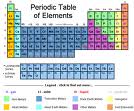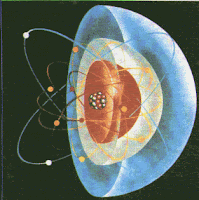2.Geologist: a scientist who studies Earth's surface.
3.Magma: hot, molten rock deep below Earth's surface.
4.Lava: magma that reaches Earth's surface.
5.Weathering: the breaking down of rock into smaller pieces.
6.Erosion: the picking up and carrying away of pieces of rock.
7.Deposition: the dropping off of bits of eroded rock.
8.Meteorite: a chunk of rock from space that strikes a surface ( such as Earth or the Moon ).



















































